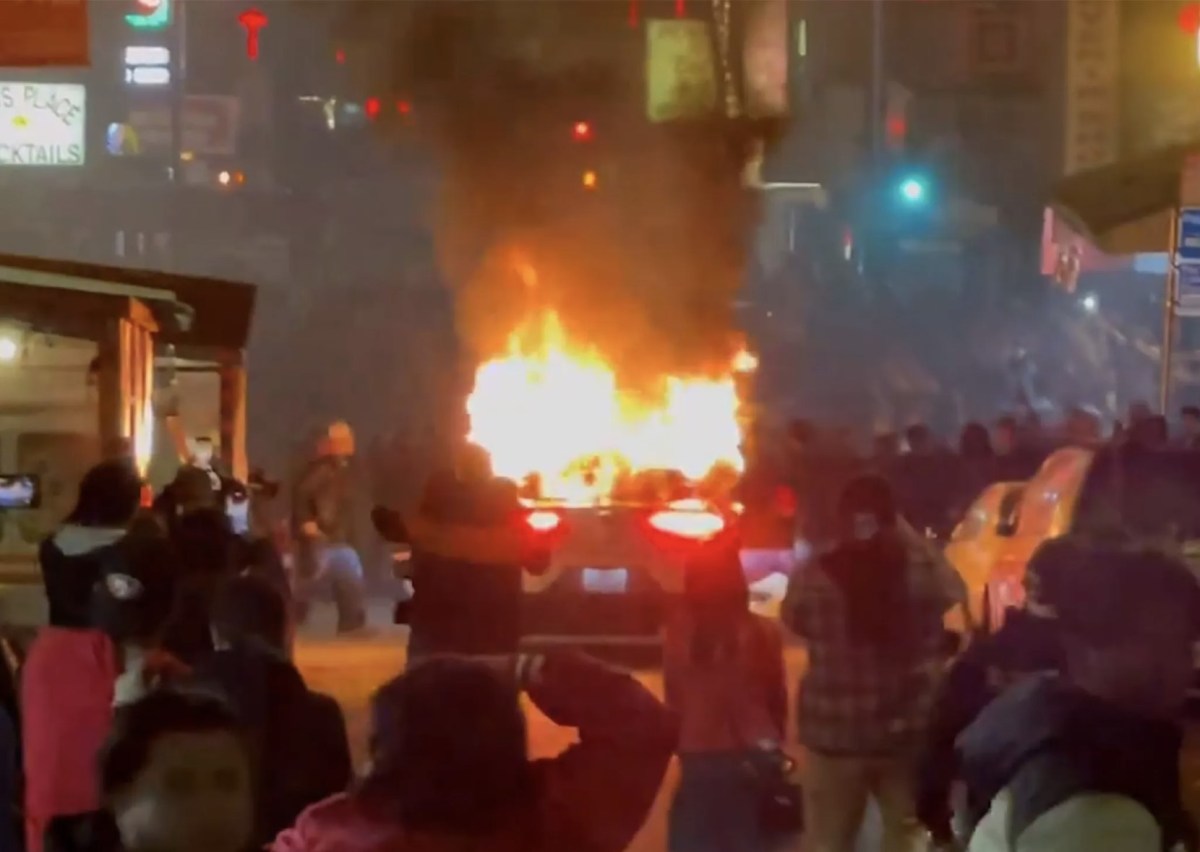And so, in a shocking turn of events, an angry crowd in San Francisco set a Waymo self-driving car on fire. The incident took place on a busy street in the city, leaving bystanders and officials in disbelief. The act of vandalism has sparked outrage and concern over the safety and acceptance of autonomous vehicles in society.
The disturbing event unfolded on a typical day in San Francisco, as the autonomous car was making its way through the city streets. Witnesses reported that a group of individuals surrounded the vehicle and began shouting and throwing objects at it. The situation quickly escalated, and before long, the car was engulfed in flames.
Authorities were quick to respond to the chaotic scene, and the fire was eventually extinguished. Thankfully, no injuries were reported, but the damage to the car was extensive. This incident has raised serious questions about the public perception and reception of self-driving technology.
While the motive behind the attack remains unclear, it is evident that there is a deep sense of distrust and disdain towards autonomous vehicles among some members of the public. This incident highlights the growing concern over the implementation and adoption of self-driving cars in urban environments.
The backlash against autonomous vehicles is not entirely surprising, as there have been numerous concerns and controversies surrounding their use. From ethical dilemmas to safety considerations, the public has expressed valid uncertainties about the implications of self-driving technology on our daily lives.
The fear of job displacement is another factor contributing to the hostility towards autonomous vehicles. Many are concerned about the potential impact of self-driving cars on employment opportunities, particularly for those in the transportation industry. This has led to resistance and pushback against the advancement of autonomous technology.
In addition to these concerns, there are also valid safety apprehensions regarding self-driving cars. The incident in San Francisco serves as a grim reminder of the potential dangers associated with autonomous vehicles. While proponents of the technology argue that self-driving cars have the potential to reduce accidents and fatalities on the road, incidents like these undermine the public’s confidence in their safety.
The incident has also reignited the debate on the regulatory framework surrounding autonomous vehicles. As self-driving technology continues to advance, there is a pressing need for comprehensive and effective regulations to ensure the safety and ethical considerations of these vehicles. Without proper oversight and guidelines, incidents like the one in San Francisco may become more frequent, further hindering the progress of autonomous technology.
It is clear that the road to widespread acceptance of self-driving cars is fraught with challenges and resistance. However, it is crucial to address the concerns and fears of the public in order to pave the way for a smoother transition to autonomous transportation. Initiatives to educate and engage the public on the benefits and safety measures of self-driving technology are imperative to cultivate trust and acceptance.
Furthermore, collaboration between tech companies, government agencies, and community stakeholders is key to addressing the apprehensions surrounding autonomous vehicles. By working together to address the concerns and implement effective regulations, we can move towards a future where self-driving cars coexist harmoniously with traditional vehicles.
In conclusion, the incident of the Waymo self-driving car being set on fire in San Francisco serves as a stark reminder of the challenges and resistance facing autonomous vehicles. From safety concerns to job displacement fears, there are valid reasons behind the skepticism and hostility towards self-driving technology. It is imperative for all stakeholders to come together and address these concerns in order to pave the way for a future where autonomous vehicles are accepted and integrated seamlessly into our daily lives.
